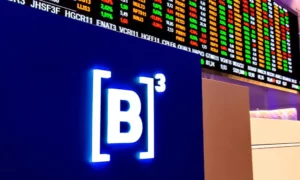The Ibovespa, Brazil’s main stock index, fell by 0.88% to 127,027 points, losing 1,131 points as a cold wave swept through São Paulo.
This decline didn’t prevent a modest weekly increase of 0.23%, halting a three-week downturn.
The dollar rose by 0.39% to R$4.99, even touching R$5 during the day. Interest rates showed mixed outcomes, with long-term rates rising and short-term rates falling.
Today’s market drop is centered on fiscal worries. The government slashes the budget by R$2.9 billion ($580 million) to meet spending limits amid rising obligatory spending concerns.
Despite forecasting a R$9.3 billion (about $1.86 billion) deficit in 2024 within fiscal framework limits, skepticism about fiscal targets persists.

Finance Minister Haddad noted bi-monthly revenue growth, indicating a balanced budget relies on government branches working together.
A pivotal court decision this week removed a potential R$480 billion (about $96 billion) expense, aiding fiscal efforts.
In addition, investors now await central bank insights, seeking direction from recent policy decisions.
With U.S. inflation concerns potentially affecting Brazil’s interest rates, market volatility is expected to rise, as per Levante’s analysis.
In the stock market, Petrobras gained 0.98%, countering global oil price drops, while Embraer soared 7.93% on favorable analyst views.
Meanwhile, Magazine Luiza fell 3.52% after announcing a capital increase and stock consolidation.
Retailers like Casas Bahia faced a 12.93% drop, influenced by the Central Bank’s strict stance.
The upcoming week, shortened by Good Friday, will bring the Central Bank’s meeting minutes, offering further clarity on its policy statement.
As the weather clears, the financial market anticipates whether fiscal concerns will ease.

